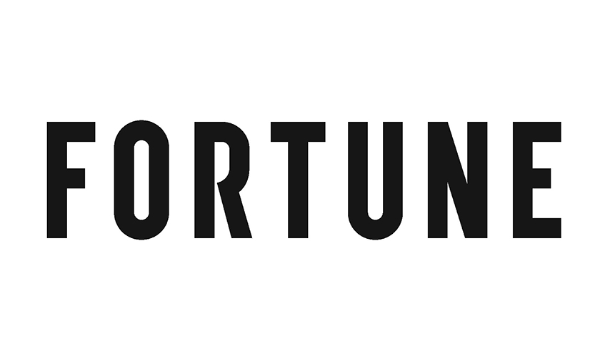Supply chain disruptions have become one of the biggest challenges facing the UK construction sector today, pushing project timelines, costs, and the stability of the industry into uncertain territory.
Over the past few years, a series of global shocks - from the COVID-19 pandemic to Brexit to geopolitical tensions - have exposed just how fragile construction supply chains are. The result: a perfect storm of material shortages, spiralling costs, labour scarcity, and postponed developments across the country.
For an industry already important to addressing the UK’s deepening housing crisis, it’s hard to see a way out.
Construction Supply Chains Under Strain
Supply chain disruptions are reverberating across every corner of the construction sector.
According to the BEIS Monthly Statistics of Building Materials and Components, the cost of materials rose every month from September 2020 to September 2021. Timber, steel, and cement - all very important to construction - have become scarcer and more expensive.
Bricklayers now charge upwards of £220 per day, compared to £180 pre-pandemic, according to The Financial Times.
Around 38% of inflationary costs can now be attributed to labour and materials, contributing to an alarming statistic: by late 2022, 80% of UK builders reported having to postpone projects due to supply shortages.
The ripple effects are clear.
Smaller contractors without the financial buffers of larger firms are particularly vulnerable, and insolvency in the sector has surged to around 450 companies per month. The collapse of major players like Buckingham Group and Henry Construction Group has only made the industry even more unstable.
Navigating a Shifting Landscape
In response, many construction businesses are rethinking their supply chain strategies:
- Diversifying suppliers to reduce reliance on single sources
- Investing in domestic manufacturing to secure local materials
- Improving logistics and transport management to mitigate delays
- Focusing on compliance and risk management, particularly with new regulations around tax
Yet resilience doesn’t happen overnight. It requires both strategic planning and strong partnerships across the supply chain.
One example is OBM Ltd, a leading building and timber supplier based in Kent. Amid widespread timber shortages, OBM Ltd has remained committed to sourcing high-quality, sustainable materials locally wherever possible. Their approach - prioritising reliability and sustainability —-has allowed contractors and developers to continue sourcing essential products even as international supply lines falter.
The Impact on Housing and Residents
The broader implications go far beyond the construction industry alone.
As building projects stall, the delivery of new homes, important to tackling Britain’s housing shortage, is slowing dramatically. Homeowners doing renovations also find themselves facing longer timelines, higher costs, and major disruptions to their living situations.
In this climate, storage solutions have become more important than ever.
Flexible storage providers are playing an increasingly critical role, offering secure, affordable storage by the box for people and businesses alike. Whether it’s families needing to temporarily store furniture during delayed home renovations or builders needing to safely hold materials off-site during project delays, these storage services bridge the gaps caused by supply chain uncertainty.
The Broader Risk
The crisis in construction is about more than just missing deliveries. It exposes how economic, political, financial, and environmental issues can destroy supply chains.
Factors that are contributing to ongoing disruption include:
- Natural disasters and pandemics that affect global production
- Political instability and regulatory change, notably the ongoing impacts of Brexit
- Financial fragility among smaller suppliers that are unable to weather cash flow pressures
As insolvency rates rise and more companies struggle to manage cash flow, the risks of over-reliance on single suppliers become more likely.
Financial due diligence, contingency planning, and risk-sharing contracts are now important survival strategies for construction firms of all sizes.
Building Supply Chain Resilience: The Way Forward
So what does resilience look like in 2025?
Construction firms increasingly need to:
- Conduct deep due diligence on suppliers, factoring in geopolitical and financial risks.
- Improve contract oversight to reduce cash leakage - World Commerce & Contracting estimates that 8.6% of contract value is typically lost across supply chains.
- Strengthen supplier contingency planning to anticipate ownership or service quality changes.
- Collaborate with suppliers and clients on risk-sharing frameworks to spread exposure more evenly.
- Prepare for tax and regulatory changes that impact not only direct operations but the broader supply chain ecosystem.
At a time when even small inefficiencies can turn profitable projects into liabilities, the construction industry must rethink supply chains not as a cost-saving afterthought, but as an important strategic function.
Supply Chain Disruptions: The Way Forwards
The supply chain disruptions hammering the UK construction sector are a reminder of how interconnected and vulnerable modern economies have become.
However, they also offer an opportunity: for businesses to rebuild with resilience, prioritise local sourcing, embrace flexible solutions, and prepare for future shocks.
In a sector where timing, trust, and transparency are everything, the ability to weather the storm now could define success for years to come.







